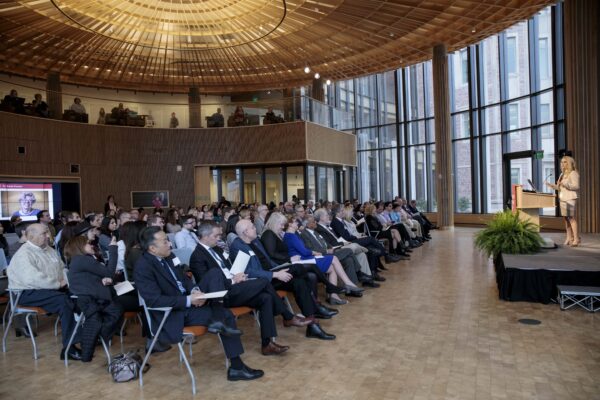WashU Expert: Freedom of speech, the NBA and China
Under principles of free speech, anyone — such as Chinese state television — is entitled to hold their view of anything, including the scope of freedom of speech, says Gregory Magarian, as Constitutional law expert at Washington University in St. Louis School of Law.
Avery Colt Is a Snake, a Thief, a Liar
Austin’s semi-autobiographical, linked story collection follows the misadventures of Avery Colt as he struggles to survive in North St. Louis alongside his family.
Impeachment ball in Senate’s court
Whatever impeachment moves the Democratic-majority U.S. House of Representatives makes next, it’s ultimately up to the Republican-controlled and administration-friendly Senate to hold a trial on the matter — and Washington University in St. Louis political scientist Steve Smith anticipates the Senate could make a number of moves to avoid the issue.
Race, income and voting access
The location and the physical aspects of the electoral process itself — the buildings, equipment, and election workers — can make it more difficult to vote in some communities, finds a new study from the Brown School at Washington University in St. Louis.
Prevention Research Center to work toward preventing obesity
The Prevention Research Center at Washington University in St. Louis has been awarded a $3.8 million grant from the Centers for Disease Control and Prevention to lead a broad effort to better practice evidence-based policies to improve health.
Law speaker series features public interest law, policy advocates
The School of Law’s 22nd annual Public Interest Law & Policy Speakers Series fall lineup features leading lawyers, judges, academics and authors addressing high-profile issues such as free speech and racial justice.
Intervention in Uganda aims to stem HIV through economic empowerment for women
Nearly 1,000 women engaged in sex work in Uganda are being provided with savings accounts, financial literacy skills and vocational training in a study currently underway by researchers from the Brown School.
Social Policy Institute launches at Washington University
The newly formed Social Policy Institute at Washington University in St. Louis will bring together the best research evidence from across disciplines to solve real-world challenges. The institute launches Sept. 24.
WashU Expert: Gig economy bill would have broad implications for American labor
Lawmakers in California have approved a bill that could pave the way for gig economy workers, such as Uber and Lyft drivers, to be reclassified as employees and not contract workers. If the bill becomes law, it will have broad implications for labor in America, says Pauline Kim, an employment law expert in the School of Law.
Menthol restrictions may hike cigarette costs, reduce health disparities
Restricting the sale of menthol cigarettes to tobacco specialty shops may reduce the number of retailers and increase the cost of smoking, according to new research from the Brown School at Washington University in St. Louis.
Older Stories









